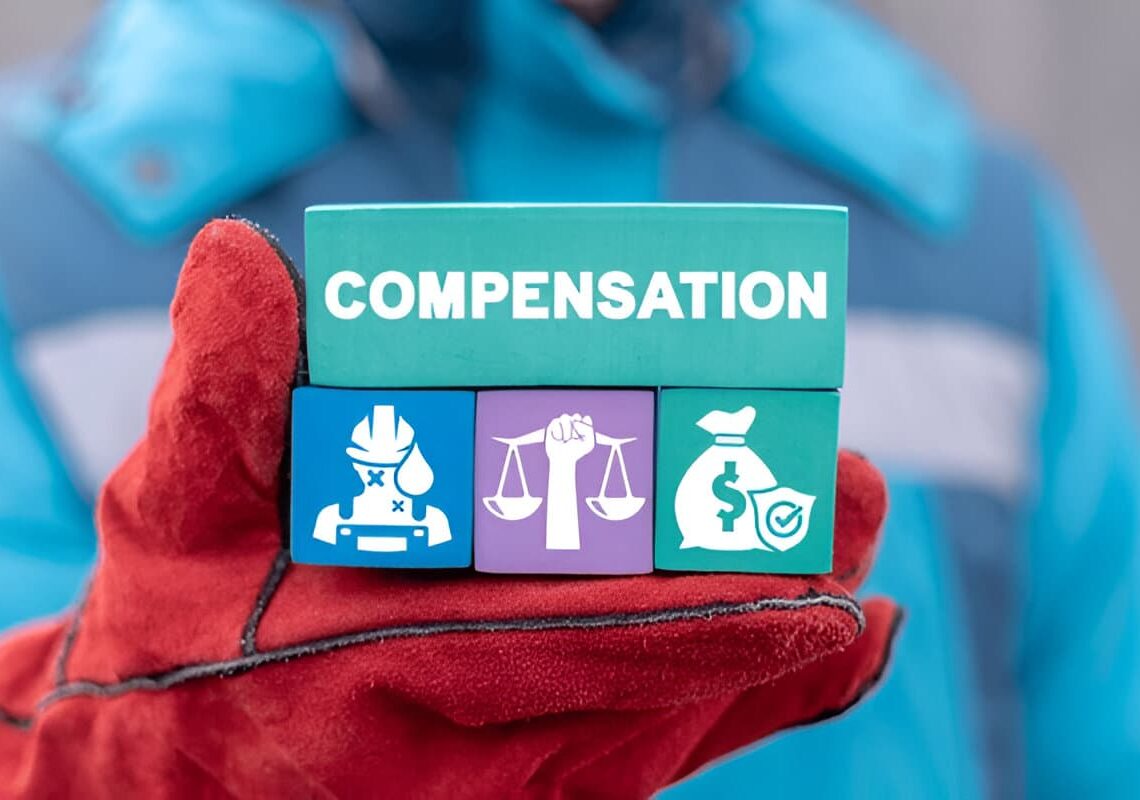Indiana Workers’ Compensation: What Injured Workers Need to Know

Getting hurt on the job changes everything. A single injury can stop your paycheck, rack up medical bills, and leave you uncertain about what to do next. That’s why understanding how Indiana’s workers’ compensation system works can make a big difference in your recovery and your ability to support yourself and your family.
What do injured employees need to know about Indiana workers’ compensation? The answers begin with the basics: who qualifies, what types of injuries count, how to file a claim, and what benefits you can receive.
Read on to learn about the kinds of injuries that are covered to what happens if your claim is denied. You’ll also learn about deadlines, common mistakes to avoid, and how a workers’ comp attorney can make the process easier and more effective.
If you’ve been injured on the job, you can contact a workers’ compensation lawyer near you for a free consultation to discuss your options.
What Is Workers’ Compensation in Indiana?
Workers’ compensation is a state-run insurance system that helps employees who suffer injuries or illnesses on the job. The goal is to provide fast, no-fault relief without requiring the employee to sue the employer. Workers’ compensation provides a safety net for employees injured on the job. It exists to help cover medical treatment, lost wages, and other needs related to workplace injuries.
Indiana’s No-Fault Insurance System
Indiana uses a no-fault model. That means you don’t have to prove your employer caused your injury. Even if you made a mistake that led to the injury, you can still receive benefits in most cases.
Types of Benefits Available to Injured Workers
Injured workers may qualify for medical care, wage replacement, disability payments, vocational training, and, in some cases, death benefits for surviving family members. These benefits vary depending on the injury’s severity and how long it keeps you from working.
Who Is Covered Under Indiana Workers’ Compensation?
Not every worker in Indiana falls under the state’s workers’ compensation system. Understanding who’s covered matters because it determines whether you have access to benefits.
Employee Classification Requirements
Most traditional employees who work for private companies are covered. Part-time, full-time, and seasonal workers typically fall under the system as long as they’re on the payroll.
Covered vs. Excluded Workers
There are exceptions. For example, independent contractors, volunteers, and some agricultural workers may not be covered. State employees and public safety workers may fall under different rules.
Independent Contractors and Coverage Issues
Independent contractors often think they’re covered, but they’re usually not. Employers sometimes misclassify workers to avoid paying insurance. If your job duties look more like those of an employee than a contractor, you may be able to challenge your classification.
What Types of Injuries Are Covered?
Not every injury will qualify, but most job-related health problems do. Here’s how the law breaks it down.
Work-Related Injuries and Illnesses

These include sudden accidents like slip and falls, burns, or equipment injuries, as well as illnesses caused by the work environment such as chemical exposure or respiratory problems.
Occupational Diseases
Some health conditions develop slowly over time from repeated exposure to something on the job. Think asbestos exposure, carpal tunnel syndrome, or hearing loss from loud machinery.
Pre-Existing Conditions and Aggravation
If your job made an old injury worse, that aggravation might qualify. The key question is whether your work duties directly worsened the condition.
Injuries During Work Travel and Company Events
Travel-related injuries may count if you’re doing something for your job when the injury happens. That might include driving to a job site or attending a required company event.
How Do I Report a Workplace Injury in Indiana?
Taking the right steps immediately after getting hurt at work can make or break your workers’ comp claim.
Immediate Steps After an Injury
Tell your supervisor as soon as possible. Don’t wait to see if the pain goes away. The longer you wait, the harder it can be to link the injury to your job.
Indiana’s 30-Day Reporting Requirement
Indiana law gives you 30 days to report the injury to your employer. Missing this deadline could result in a denied claim, even if the injury was legitimate.
Proper Documentation and Evidence Collection
Document everything. Write down how the injury happened, get the names of witnesses, take photos if needed, and keep copies of all medical records.
Notifying Your Employer vs. Filing a Claim
Telling your boss isn’t the same as filing a claim. Your employer’s insurance company usually handles the claim, and they might not file it unless you push them. Stay on top of the paperwork and follow up regularly.
Indiana Workers’ Compensation Benefits Explained
If your claim is accepted, you may receive different types of benefits depending on your situation.
Medical Benefits and Treatment Coverage
Workers’ comp should pay for all reasonable and necessary medical treatment related to the injury. This includes doctor visits, hospital stays, surgeries, medication, and physical therapy.
Temporary Total Disability (TTD) Benefits
If you can’t work while you heal, you might get weekly payments equal to two-thirds of your average weekly wage. These usually continue until your doctor says you can return to work.
Permanent Partial Disability (PPD) Benefits
When an injury causes permanent damage but doesn’t prevent you from working entirely, you may qualify for PPD benefits. These are based on a state-set schedule depending on the type and severity of the impairment.
Permanent Total Disability (PTD) Benefits
If your injury prevents you from ever working again, you may qualify for PTD benefits. These payments could continue for 500 weeks.
Vocational Rehabilitation Services
If you can’t return to your old job, workers’ comp might cover training for a new type of work. This can include education, job placement help, or retraining programs.
Death Benefits for Surviving Family Members
If a worker dies because of a job injury or illness, their dependents may receive death benefits. These include funeral expenses and a portion of the worker’s lost wages.
What Happens If My Claim Is Denied?
Insurance companies don’t always play fair. If they deny your claim, you still have options.
Common Reasons for Claim Denials
Denials often happen because the employer claims the injury didn’t happen at work or argues the worker waited too long to report it. Sometimes, missing paperwork or medical records lead to denial.
The Appeals Process in Indiana
You can challenge a denial by filing an application for adjustment of claim with the Indiana Workers’ Compensation Board. The case may go to a hearing before a judge who will decide whether you qualify for benefits.
Working with Insurance Companies
Insurance adjusters work for the insurance company, not for you. They might try to settle for less than your case is worth or delay payments. Legal help can level the playing field.
Timeline for Challenging Denials
You must file a formal claim within two years of the injury. Once the process starts, hearings and decisions can take time. Acting fast helps avoid delays.
How Long Do I Have to File a Workers’ Compensation Claim?
Waiting too long can wipe out your chance to collect any benefits. Don’t let deadlines slip past you.
Indiana’s Statute of Limitations
You must file your claim within two years from the date of the injury or the last compensation payment, whichever is later.
Notice Requirements vs. Filing Deadlines
Remember, telling your employer within 30 days is separate from filing your formal claim. Both steps are required.
Exceptions to Standard Time Limits
Some workers don’t realize they’re injured until weeks or months later. In cases like repetitive stress or occupational illness, the clock may start once the worker learns the injury is work-related.
Consequences of Missing Deadlines
Miss the deadline, and your claim may be dismissed. Insurance companies won’t bend the rules for late claims, even if the injury is serious.
Common Mistakes That Can Hurt Your Workers’ Compensation Claim
Small errors add up. Avoid these pitfalls if you want to protect your benefits.
Failing to Report Injuries Promptly
Delaying a report can make the employer and insurer question whether the injury happened at work.
Not Seeking Immediate Medical Attention
Waiting to see a doctor can suggest the injury wasn’t serious or wasn’t caused by your job.
Providing Inconsistent Statements
Telling your employer one story and your doctor another gives the insurance company a reason to deny the claim. Stay consistent.
Returning to Work Too Soon
Going back to work before you’re ready can lead to re-injury and reduce your benefits. Always follow your doctor’s advice.
Missing Medical Appointments or Deadlines
Missing appointments makes it look like you’re not taking recovery seriously. Insurance companies look for reasons to stop payments, and skipped care gives them one.
How Can Our Attorneys Help You?
A lawyer handles the legal process so you focus on your health.
- Navigating Complex Procedures: We manage the paperwork, deadlines, and communications required by the Indiana Workers’ Compensation Board.
- Securing Full Compensation: We build a comprehensive case to pursue the full benefits your injury warrants under state law.
- Handling Insurer Communications: We communicate directly with insurance adjusters, who have a duty to protect their company’s financial interests.
- Representing You in Disputes: If the insurer denies your claim, we present evidence and argue on your behalf at hearings and in appeals.
- Fighting for Proper Medical Treatment: We challenge insurers who deny reasonable and necessary medical care your doctors recommend.
- Protecting Your Rights: We work to hold your employer and its insurer accountable throughout the entire process.
Why Work With Klezmer Maudlin, PC?
You have options when picking a workers’ compensation attorney. Here’s why clients choose Klezmer Maudlin PC.
Extensive Experience in Indiana Workers’ Compensation Law
We’ve worked with injured workers across Indiana for years. We understand how the system works and how to build strong cases.
Proven Track Record of Successful Cases
We’ve helped workers recover the maximum compensation available through direct negotiation, formal hearings, and appeals.
Personalized Attention and Client Support
We treat clients like individuals, not file numbers. You’ll get personal updates, honest answers, and guidance every step of the way.
No Fees Unless You Recover Benefits
You pay nothing upfront. We only get paid if we help you recover compensation through a settlement or award.
Local Knowledge of Indiana Courts and Procedures
From Indianapolis to Fort Wayne and beyond, we know how Indiana courts and agencies handle workers’ compensation.
Comprehensive Case Management from Start to Finish
We take care of everything from filing to follow-up so you don’t have to keep track of every detail.
Frequently Asked Questions About Indiana Workers’ Comp
Can I choose my own doctor for workers’ compensation treatment?
Not always. Your employer or their insurance company may pick the doctor. However, you can request a second opinion or challenge the care if needed.
Will I be fired for filing a workers’ compensation claim?
Employers aren’t allowed to fire you for filing a claim. If they do, you may have a separate legal claim for retaliation.
Can I receive workers’ compensation if the injury was partially my fault?
Yes. Indiana’s no-fault system means you can still qualify even if you made a mistake.
How much will I receive in workers’ compensation benefits?
It depends on your average weekly wage and the severity of your injury. Benefits are usually two-thirds of your regular pay.
Can I sue my employer for a workplace injury?
Usually no. Workers’ comp replaces the right to sue in most cases. However, third-party lawsuits might be possible if someone else caused the injury.
What if I was injured while working from home?
If your injury happened while doing job-related tasks, it might still qualify. Each case depends on the specific facts.
What if my employer does not carry workers’ compensation insurance?
If your employer illegally fails to carry workers’ compensation insurance, you may file a claim with the Indiana Workers’ Compensation Board. The employer becomes personally responsible for paying your benefits. The Board has mechanisms to enforce payment in these situations.
Do I pay taxes on my workers’ compensation benefits?
No. In Indiana, you do not pay federal, state, or local income tax on wage replacement benefits or medical benefits you receive through a workers’ compensation claim.
What should I do if the insurance company offers a settlement?
You should never accept a settlement offer without understanding its full terms. A settlement may close your right to future medical care or other benefits. Always have an attorney review any settlement agreement to ensure it fairly compensates you for your injury and future needs.
Can I receive workers’ compensation and Social Security Disability benefits at the same time?

Yes, but your workers’ compensation benefits might reduce your Social Security Disability Insurance (SSDI) payments. This is known as a workers’ compensation offset.
Federal law has specific rules for coordinating these benefits, and an attorney helps structure your settlement to lessen the offset’s impact.
My doctor released me to light-duty work, but my employer says none is available. What now?
If your employer cannot accommodate your light-duty restrictions, you should continue to receive Temporary Total Disability (TTD) benefits.
You remain eligible for these wage replacement benefits until your employer offers a suitable position or your doctor determines you have reached your maximum medical improvement.
Take Action: Protect Your Rights Today
The sooner you act after a workplace injury, the better your chances of receiving the maximum compensation available. Evidence fades, and deadlines pass quickly.
Klezmer Maudlin PC helps injured workers across Indiana understand their rights and take the next steps with confidence.
Contact us today for a free consultation. We’ll review your situation, answer your questions, and explain your options.

